Luxury Meets Mobility: Lida Group’s High Quality Mobile House Range Features Premium Temporary Sandwich Panel Designs.
2025-Aug-25 14:37:43
By Admin
1. Introduction
In an era where flexibility, speed, and comfort have become non-negotiable demands across industries—from hospitality and events to construction and emergency response—the concept of “temporary living” has undergone a radical transformation. No longer synonymous with compromise on quality or luxury, modern temporary structures are now designed to deliver the same level of comfort, aesthetics, and functionality as permanent buildings, while retaining the core advantage of mobility. This shift has been driven by advancements in building materials and manufacturing techniques, with sandwich panels emerging as a game-changing component in the production of high-quality mobile houses.
Lida Group, a global leader in prefabricated (prefab) building solutions, has been at the forefront of this transformation. The company’s high-quality mobile house range redefines what temporary living can be, seamlessly blending luxury with mobility through its innovative use of premium temporary sandwich panel designs. Unlike generic mobile structures that prioritize cost over comfort, Lida Group’s offerings cater to markets where both performance and aesthetics matter—think luxury glamping resorts, high-end construction worker accommodations, VIP event spaces, and emergency shelters for disaster relief that don’t skimp on safety or comfort.
This article explores why Lida Group’s mobile house range stands out in a crowded market, focusing on the technical excellence, design versatility, and functional benefits of its premium sandwich panels. We will delve into the unique properties of these panels, how they enhance the luxury and mobility of Lida Group’s mobile houses, and real-world applications where these structures have delivered exceptional value. By the end, it will be clear why Lida Group has become a preferred choice for clients seeking temporary solutions that don’t compromise on quality, comfort, or style.
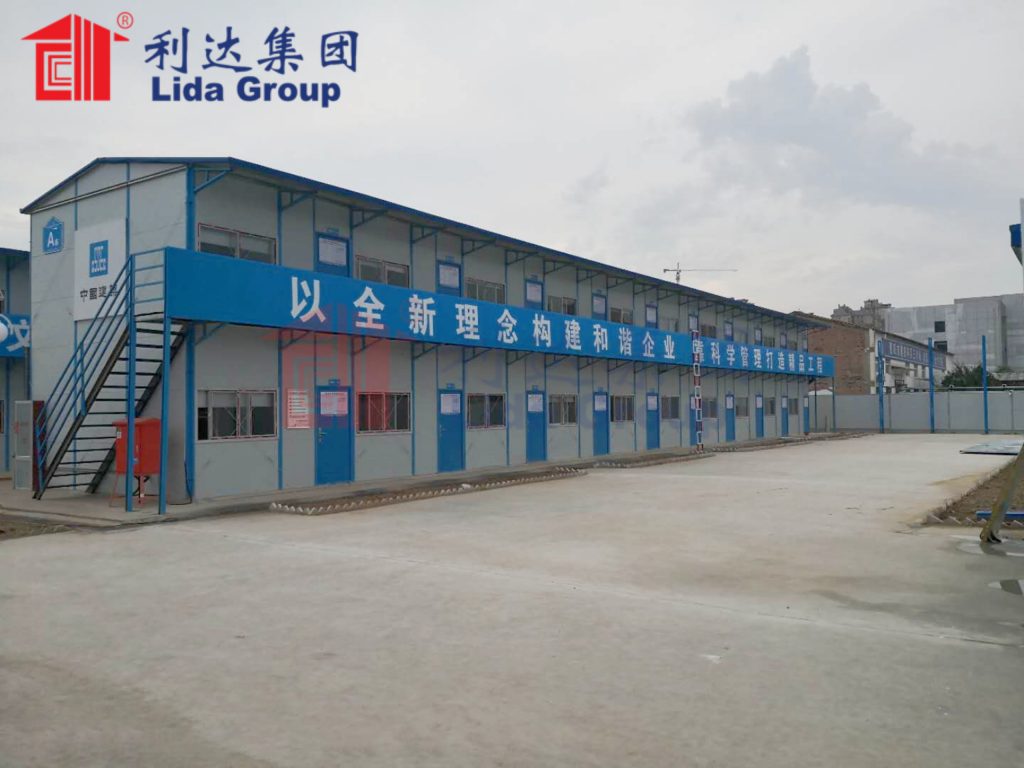
2. The Rise of Premium Temporary Structures: Why Luxury and Mobility Matter
Before diving into Lida Group’s sandwich panel designs, it’s critical to understand the market forces driving the demand for premium temporary mobile houses. The traditional view of temporary buildings as “basic” or “functional-only” is no longer relevant, as three key trends have reshaped the industry:
2.1 The Glamping and Hospitality Boom
The global glamping market has grown exponentially in recent years, driven by travelers seeking unique, nature-immersive experiences without sacrificing the comforts of a luxury hotel. Unlike traditional camping, glamping requires accommodations that offer plush bedding, private bathrooms, climate control, and even high-end finishes—all while being removable or relocatable to preserve natural landscapes. Permanent structures in ecologically sensitive areas are often prohibited, making mobile luxury houses the only viable option. For hospitality operators, this means investing in temporary solutions that look and feel premium, as guest satisfaction and brand reputation depend on it.
2.2 Demand for High-Quality Worker Accommodations
In industries like construction, oil and gas, and mining, companies are increasingly recognizing that worker well-being directly impacts productivity and retention. Gone are the days of cramped, uncomfortable dormitories for on-site staff. Today’s employees expect accommodations that feel like “home away from home”—with private or semi-private rooms, proper insulation, soundproofing, and modern amenities. These accommodations also need to be mobile, as construction projects or mining operations often shift locations. Premium temporary houses solve this problem by offering comfort that boosts morale, while mobility ensures companies don’t waste resources on permanent structures that become obsolete once a project ends.
2.3 VIP Events and Emergency Response
High-profile events such as music festivals, sports tournaments, and corporate retreats often require temporary VIP lounges, offices, or hospitality suites that reflect the event’s prestige. These spaces need to be visually appealing, spacious, and equipped with luxury features (e.g., high-end furniture, climate control, premium flooring) while being quick to set up and take down. Similarly, in emergency response scenarios—such as natural disasters or humanitarian crises—governments and NGOs need shelters that are not only fast to deploy but also safe, comfortable, and durable enough to house displaced populations for extended periods. In both cases, “temporary” does not mean “low-quality”; it means adaptable, and luxury (in the form of safety, comfort, and dignity) is a necessity.
These trends collectively create a demand for mobile houses that balance two seemingly contradictory qualities: luxury (in terms of comfort, aesthetics, and functionality) and mobility (in terms of speed of deployment, ease of relocation, and minimal site impact). The key to achieving this balance lies in the building materials used—and for Lida Group, that material is the premium sandwich panel.
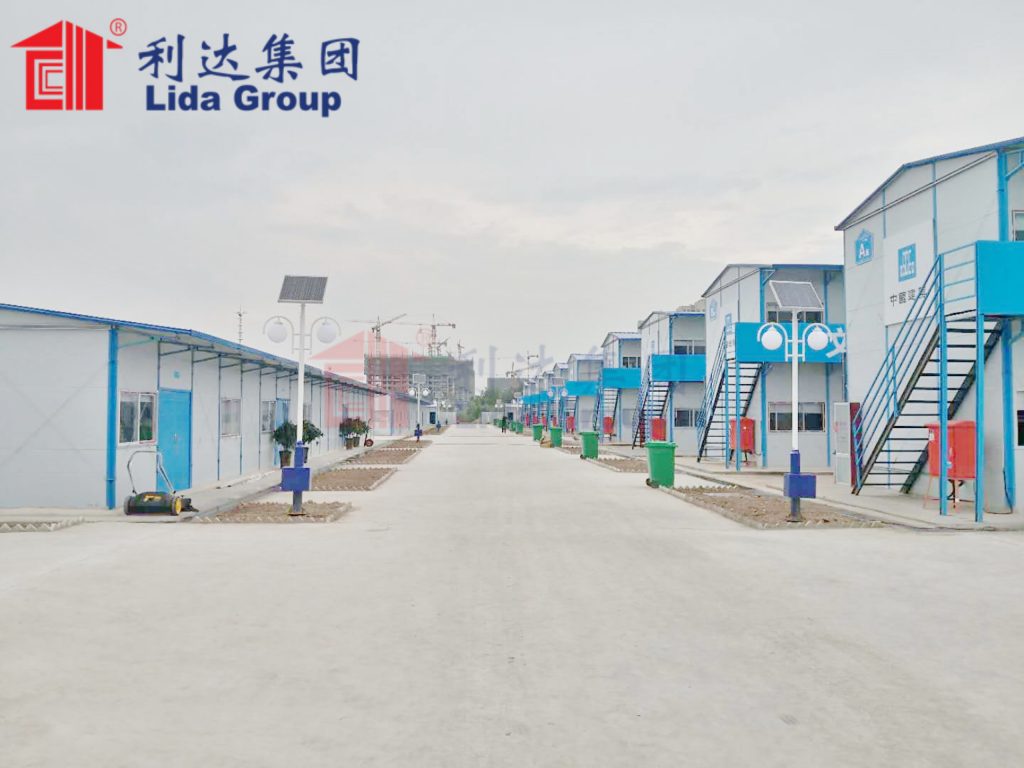
3. Understanding Lida Group’s Premium Sandwich Panels: The Foundation of Luxury Mobility
At the heart of Lida Group’s mobile house range is its proprietary premium sandwich panel design. A sandwich panel is a composite material consisting of three layers: two outer facings (known as “skins”) and a central core. The combination of these layers creates a material that is lightweight, strong, and highly versatile—properties that are essential for mobile structures. However, Lida Group’s panels stand out from generic alternatives due to their high-quality materials, precision engineering, and focus on both performance and aesthetics.
3.1 The Composition of Lida Group’s Sandwich Panels
Lida Group offers a range of sandwich panel configurations, each tailored to specific use cases (e.g., cold climates, high-humidity areas, or luxury applications). However, all panels share a core commitment to quality, with three key components:
3.1.1 Outer Skins: Durability Meets Aesthetics
The outer layers (skins) of Lida Group’s sandwich panels are made from high-grade materials that provide both structural integrity and visual appeal—two critical factors for luxury mobile houses. The most common skin materials include:
- Aluminum Alloy: Lightweight yet strong, aluminum alloy skins are corrosion-resistant (ideal for coastal or humid environments) and can be finished in a range of colors or textures. Lida Group uses 5000-series aluminum alloy, which offers excellent impact resistance—protecting the panels from dents or scratches during transportation and installation. The alloy is also recyclable, aligning with sustainability goals.
- Galvanized Steel: For applications requiring extra durability (e.g., construction worker accommodations or emergency shelters), Lida Group uses galvanized steel skins. The steel is coated with a layer of zinc, which prevents rust and corrosion even in harsh conditions (such as mining sites or industrial areas). The steel skins can be painted with high-quality, weather-resistant coatings in custom colors, ensuring the mobile houses look polished and professional.
- Fiber Cement: For luxury applications like glamping resorts, Lida Group offers fiber cement skins. These skins have a natural, textured finish that mimics wood, stone, or brick—adding a touch of elegance to the mobile house’s exterior. Fiber cement is fire-resistant, water-resistant, and low-maintenance, making it perfect for outdoor use where aesthetics and durability are equally important.
What sets Lida Group’s skins apart is their precision manufacturing. Each skin is cut to exact specifications using computer-aided design (CAD) software and automated machinery, ensuring consistency across all panels. The skins are also pre-finished in the factory, eliminating the need for on-site painting or finishing—a key advantage for rapid deployment.
3.1.2 Central Core: Insulation, Strength, and Comfort
The central core of the sandwich panel is responsible for the material’s insulation properties, structural strength, and lightweight design—all critical for luxury mobile houses. Lida Group offers three core options, each optimized for specific performance needs:
- Polyurethane Foam (PU): The most popular core material for luxury applications, PU foam has exceptional thermal insulation (high R-value). This means it keeps the interior of the mobile house cool in hot weather and warm in cold weather, reducing reliance on heating, ventilation, and air conditioning (HVAC) systems. PU foam is also lightweight, which makes the panels easier to transport and install, and it has good soundproofing properties—blocking out external noise (e.g., traffic, wind, or event crowds) for a quieter, more comfortable interior. Lida Group uses high-density PU foam (40-50 kg/m³) that is fire-retardant, meeting international safety standards.
- Rock Wool: For applications where fire safety is a top priority (e.g., emergency shelters or industrial accommodations), Lida Group uses rock wool cores. Rock wool is made from molten rock spun into fibers, and it is non-combustible (with a fire rating of A1, the highest possible). It also offers excellent thermal insulation and sound absorption, making it ideal for harsh or high-risk environments. Rock wool is moisture-resistant, preventing mold or mildew growth in humid conditions.
- XPS Foam (Extruded Polystyrene): For cold climates (e.g., glamping resorts in mountainous areas or construction sites in winter), Lida Group uses XPS foam cores. XPS foam has a closed-cell structure that provides superior insulation against extreme cold, and it is highly resistant to moisture—preventing the core from absorbing water and losing its insulating properties. XPS foam is also strong and durable, supporting heavy loads (such as snow on the roof) without deforming.
Each core material is bonded to the outer skins using high-strength adhesives that are tested for durability. The bonding process is done in a controlled factory environment, ensuring that the panels are free from gaps or delamination—common issues with low-quality sandwich panels that compromise insulation and strength.
3.1.3 Edge Seals and Connections: Ensuring Weather Resistance
A critical but often overlooked component of sandwich panels is the edge seals and connection systems. Lida Group’s panels are equipped with precision-engineered edge profiles and weather-resistant seals that prevent water, dust, or air from entering the mobile house. The edges are sealed with EPDM rubber gaskets (a durable, weather-resistant material) that compress when the panels are joined together, creating a tight, waterproof seal. The connection systems use stainless steel fasteners that are corrosion-resistant, ensuring the panels remain securely attached even in high winds or heavy rain.
This attention to detail ensures that Lida Group’s mobile houses are weathertight—an essential feature for luxury living, as leaks or drafts would compromise comfort and damage interior finishes.

3.2 Key Advantages of Lida Group’s Sandwich Panels for Mobile Houses
Lida Group’s premium sandwich panels are not just high-quality—they are specifically designed to address the unique needs of mobile houses, where luxury and mobility must coexist. Below are the key advantages these panels offer:
3.2.1 Lightweight Yet Strong: Enabling Mobility Without Sacrificing Durability
One of the biggest challenges in mobile house design is balancing weight and strength. Heavy structures are difficult to transport and require expensive, specialized equipment to move. However, lightweight structures often lack the durability to withstand transportation, installation, and harsh weather. Lida Group’s sandwich panels solve this problem: the combination of lightweight skins (aluminum alloy or fiber cement) and low-density cores (PU or XPS foam) makes the panels significantly lighter than traditional building materials (such as brick, concrete, or wood). For example, a 100mm-thick PU foam sandwich panel weighs approximately 15-20 kg/m², compared to 50-60 kg/m² for a brick wall of the same thickness.
Despite their light weight, the panels are remarkably strong. The composite structure of the sandwich panel distributes weight evenly across the surface, making the panels resistant to bending, warping, or breaking. Lida Group’s panels have a compressive strength of up to 250 kPa (for PU foam cores) and can withstand wind loads of up to 120 km/h—ensuring the mobile house remains stable during transportation and in harsh weather conditions.
This lightweight yet strong design means Lida Group’s mobile houses can be transported via standard trucks (no need for heavy-duty vehicles) and installed using small cranes or even manual labor (for smaller units). This reduces transportation and installation costs, while also making the houses easier to relocate—core benefits of mobility.
3.2.2 Superior Insulation: Delivering Luxury Comfort in Any Climate
Luxury living is impossible without consistent, comfortable indoor temperatures—and that’s where Lida Group’s sandwich panels excel. The high-quality cores (PU, rock wool, or XPS foam) provide exceptional thermal insulation, ensuring the interior of the mobile house remains at a comfortable 20-25°C (68-77°F) even when outdoor temperatures fluctuate.
For example:
- In hot climates (e.g., glamping resorts in the desert), a PU foam core with a reflective aluminum skin can reduce heat absorption by up to 70%, keeping the interior cool without excessive use of air conditioning. This not only improves comfort but also reduces energy costs—a key consideration for long-term use.
- In cold climates (e.g., construction sites in northern regions), an XPS foam core with rock wool insulation can maintain indoor temperatures above 20°C even when outdoor temperatures drop to -30°C, eliminating the need for expensive, fuel-intensive heaters.
The panels also offer excellent sound insulation. PU foam cores, in particular, absorb sound waves, reducing external noise by up to 40 decibels—equivalent to the difference between a busy street and a quiet office. This is critical for luxury applications, where guests or workers need a peaceful environment to relax or work.
3.2.3 Aesthetic Versatility: Customizing for Luxury Brands
Luxury is as much about aesthetics as it is about comfort—and Lida Group’s sandwich panels offer unmatched design versatility. The outer skins can be customized to match the brand identity or aesthetic preferences of the client, with options including:
- Colors: A wide range of RAL or Pantone colors, including matte, gloss, or metallic finishes. For example, a glamping resort might choose earthy tones (beige, green, or brown) to blend with the natural environment, while a corporate event space might opt for sleek black or white to convey professionalism.
- Textures: The skins can be embossed or textured to mimic natural materials like wood, stone, or tile. Fiber cement skins, for instance, can be finished to look like reclaimed wood—adding warmth and elegance to a glamping unit—without the maintenance issues of real wood (such as rot or termite damage).
- Custom Prints: For events or marketing activations, Lida Group can print custom graphics, logos, or patterns on the panel skins. This allows brands to create a unique, immersive experience for guests or customers.
The panels can also be cut into non-standard shapes (e.g., curved walls or angled roofs) using specialized machinery, enabling the design of unique, eye-catching mobile houses that stand out from generic structures. This aesthetic versatility is a key reason why Lida Group’s mobile houses are chosen for luxury applications—they don’t look “temporary”; they look like high-end, custom-built structures.
3.2.4 Rapid Installation: Maximizing Mobility and Minimizing Downtime
Mobility isn’t just about being able to relocate a structure—it’s also about how quickly it can be set up and made operational. Lida Group’s sandwich panels are designed for fast, easy installation, thanks to several key features:
- Modular Design: The panels are manufactured in standard sizes (e.g., 1.2m wide x 3m long) that fit together like building blocks. This modular design means that even large mobile houses can be assembled by a small team (4-6 workers) in a matter of days, rather than weeks or months.
- Pre-Finished and Pre-Integrated: The panels are pre-finished in the factory, so there’s no need for on-site painting, plastering, or tiling. Additionally, cutouts for windows, doors, and utility connections (electrical, plumbing, HVAC) are made during manufacturing, eliminating the need for time-consuming on-site cutting.
- Simple Connection Systems: The panels use a tongue-and-groove connection system with pre-installed seals and fasteners. This means that workers don’t need specialized skills to assemble the panels—they simply fit the tongue of one panel into the groove of another and secure them with the provided fasteners.
For example, a 50-square-meter luxury glamping unit from Lida Group can be transported as a set of panels and fully assembled on-site in 2-3 days, including the installation of furniture and utilities. This rapid installation is a game-changer for clients like glamping operators, who need to set up their resorts quickly to capitalize on peak travel seasons, or event organizers, who have tight timelines for setting up VIP spaces.
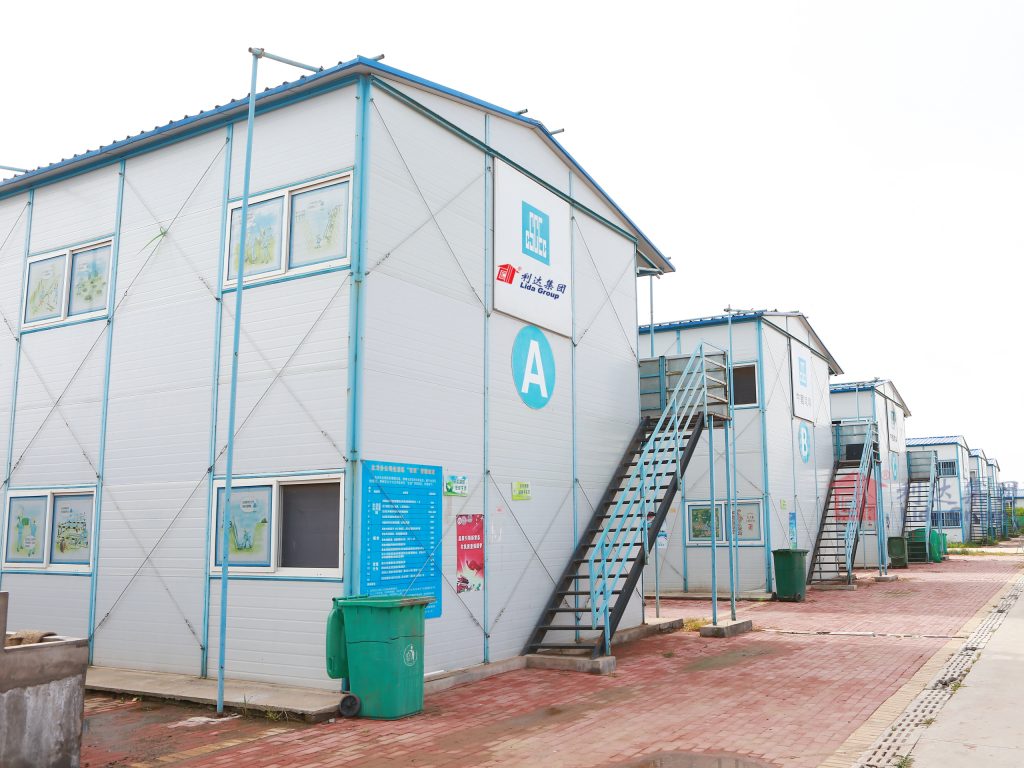
4. Lida Group’s Mobile House Range: Luxury and Mobility in Action
Lida Group’s premium sandwich panels are the foundation of its diverse mobile house range, which caters to three key luxury-focused markets: glamping and hospitality, high-end worker accommodations, and VIP events/emergency response. Each product line is designed to meet the unique needs of these markets, while retaining the core benefits of sandwich panel technology—lightweight mobility, superior comfort, and aesthetic versatility.
4.1 Glamping & Hospitality: Luxury in the Great Outdoors
Lida Group’s glamping mobile house range is designed for operators who want to offer guests a “five-star camping” experience—one that combines the beauty of nature with the comforts of a luxury hotel. These units are available in a range of sizes and layouts, from 30-square-meter “tiny homes” for couples to 100-square-meter family units with multiple bedrooms and living spaces.
Key Features of Glamping Units
- Aesthetic Design: The exterior uses fiber cement skins with wood or stone textures, blending seamlessly with natural surroundings. The roof can be designed with a sloped or curved profile, adding a touch of elegance. Large, double-glazed windows (framed in aluminum alloy) provide panoramic views of the landscape, while sliding glass doors open to a private deck or patio.
- Interior Luxury: The interior is finished with high-end materials, including hardwood flooring, quartz countertops, and premium fixtures. The living area features a comfortable sofa and a smart TV, while the bedroom has a king-size bed with luxury linens. The bathroom includes a rain shower, a vanity with a marble top, and eco-friendly toiletries.
- Sustainable Comfort: The PU foam sandwich panels provide excellent insulation, reducing energy use for HVAC. Many units are equipped with solar panels on the roof (integrated into the panel design) to power lighting and small appliances, and rainwater harvesting systems to collect water for the shower and toilet.
- Mobility: The units can be disassembled into panels and transported to remote locations (e.g., national parks, mountain resorts) via truck or helicopter. Once on-site, they require minimal ground preparation—just a level surface—so they don’t damage the natural environment.
Real-World Application: Mountain Glamping Resort
A glamping operator in the Swiss Alps partnered with Lida Group to create a 20-unit resort in a remote mountain valley. The operator needed units that could withstand heavy snowfall, extreme cold, and strong winds, while also offering guests luxury comfort and stunning views. Lida Group’s solution included:
- XPS foam core sandwich panels for superior insulation against the cold.
- Fiber cement skins with a wood texture to blend with the surrounding pine forests.
- Triple-glazed windows to prevent heat loss and reduce condensation.
- Heated floors integrated into the panel design to keep the interior warm.
The units were transported to the valley via snowmobiles (due to narrow, snow-covered roads) and assembled in 10 days. The resort opened in time for the winter ski season and quickly became a popular destination, with guests praising the units’ warmth, comfort, and stunning design. The operator reported a 30% higher occupancy rate than their previous, more basic glamping units, demonstrating the value of luxury mobile houses.
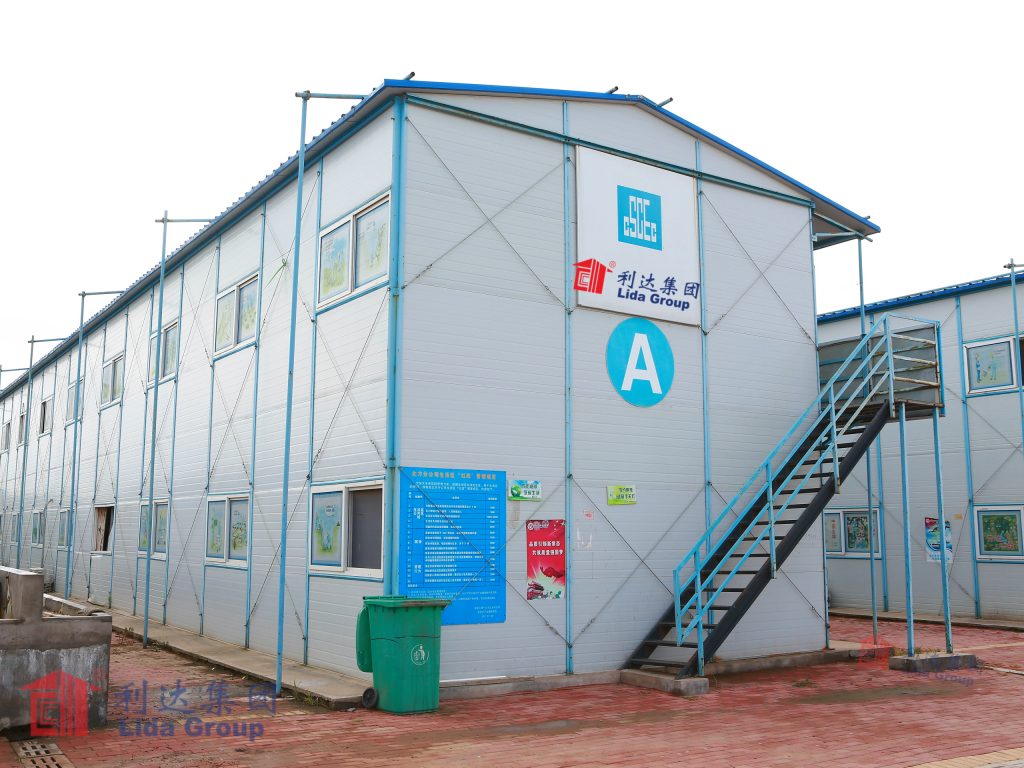
4.2 High-End Worker Accommodations: Comfort That Boosts Productivity
For industries like construction, oil and gas, and mining, worker accommodations are no longer an afterthought. Companies are investing in high-quality temporary housing to attract and retain skilled workers, reduce turnover, and improve productivity. Lida Group’s worker accommodation range is designed to meet this demand, offering units that are comfortable, durable, and cost-effective.
Key Features of Worker Accommodations
- Durable Design: The exterior uses galvanized steel skins with a weather-resistant coating, protecting the units from corrosion, impact, and harsh weather (e.g., sandstorms, heavy rain). The panels are also fire-resistant, meeting strict safety standards for industrial sites.
- Comfortable Layouts: The units are available in single, double, or quadruple occupancy layouts, with each worker having their own bed (with a mattress), storage space, and personal lighting. Communal areas include a dining hall, kitchen, and recreation room—all finished with easy-to-clean, durable materials (e.g., vinyl flooring, stainless steel countertops).
- Practical Amenities: The units are equipped with heating and cooling systems (powered by diesel generators or solar panels), hot water showers, and flushing toilets connected to a septic tank. The sandwich panels’ soundproofing properties ensure that workers can rest undisturbed, even in noisy industrial environments.
- Mobility and Scalability: The modular design allows companies to easily add or remove units as the workforce size changes. When a project ends, the units can be disassembled and relocated to the next site, eliminating the need to build new accommodations from scratch.
Real-World Application: Offshore Oil Rig Accommodations
An oil and gas company operating in the North Sea needed accommodations for 50 workers on a remote offshore platform. The company required units that could withstand saltwater corrosion, high winds, and extreme temperatures (ranging from -10°C in winter to 30°C in summer), while also being compact enough to fit on the platform. Lida Group’s solution included:
- Galvanized steel skins with a salt-resistant coating to prevent corrosion.
- Rock wool core sandwich panels for fire safety and insulation.
- Compact, 20-square-meter double-occupancy units with bunk beds, storage, and a small desk.
- Communal modules (kitchen, dining hall, shower block) that could be connected to the bedroom units.
The units were transported to the platform via supply ship and assembled in 5 days. Workers reported a significant improvement in comfort compared to their previous accommodations, with fewer complaints about noise, cold, or dampness. The company noted a 15% reduction in worker turnover and a 10% increase in productivity, demonstrating that high-quality accommodations deliver a tangible return on investment.
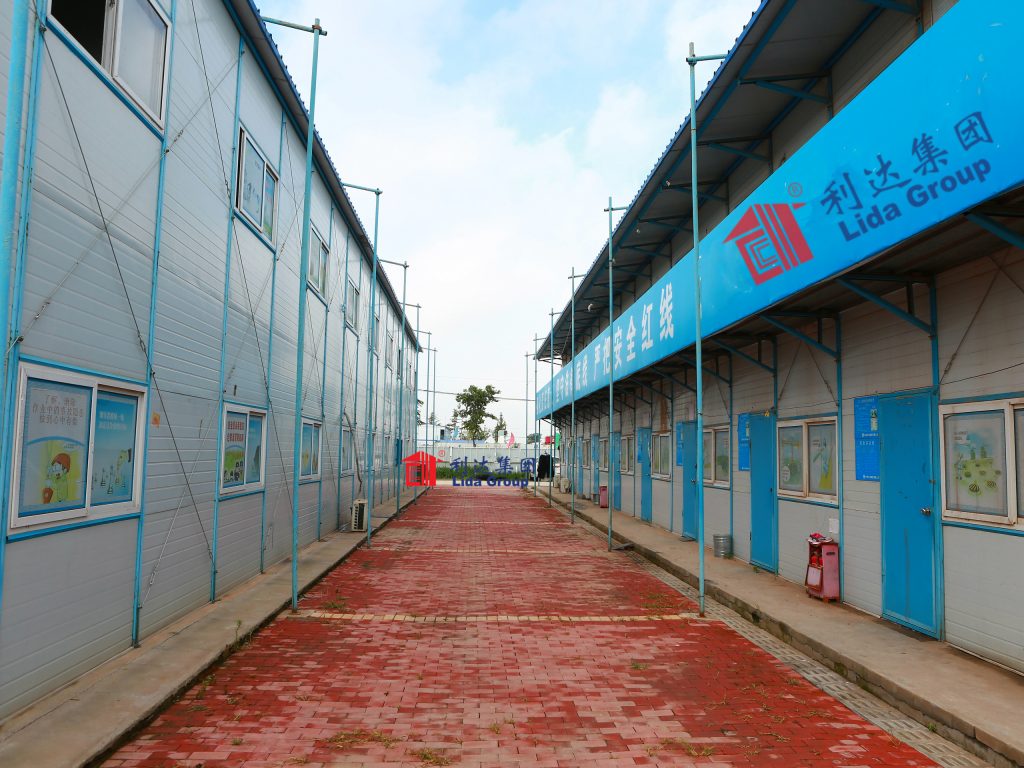
4.3 VIP Events & Emergency Response: Versatility for Every Need
Lida Group’s mobile house range also includes units designed for two very different but equally demanding markets: VIP events and emergency response. While these markets have distinct needs, both require structures that are fast to deploy, safe, and functional—with a touch of luxury for VIP events.
Key Features of VIP Event Units
- Elegant Design: The exterior uses aluminum alloy skins with a matte or gloss finish in custom colors (e.g., gold, silver, or brand-specific hues). The interior is finished with high-end materials, including marble flooring, velvet curtains, and premium furniture (e.g., leather sofas, dining tables).
- Flexible Layouts: The units can be configured as lounges, offices, meeting rooms, or hospitality suites. They can also be connected to form larger spaces (e.g., a 200-square-meter VIP area for a music festival).
- Premium Amenities: The units are equipped with air conditioning, high-speed Wi-Fi, a mini-bar, and a sound system. Large windows and sliding doors create an open, spacious feel, while the sandwich panels’ insulation ensures the interior remains comfortable even in crowded, noisy event environments.
Key Features of Emergency Response Units
- Rapid Deployment: The units are designed to be shipped as complete modules (rather than panels) for ultra-fast setup—they can be operational within 24 hours of arrival at a disaster site.
- Safety and Durability: The panels are fire-resistant, wind-resistant, and waterproof, protecting occupants from the elements. The units are also equipped with emergency lighting, first aid kits, and ventilation systems to prevent the buildup of harmful fumes.
- Functional Layouts: The units can be used as shelters, medical clinics, or command centers. They are designed to accommodate 10-20 people per unit, with bunk beds, a small kitchenette, and a bathroom.
Real-World Applications
- VIP Event: A major sports tournament organizer used Lida Group’s VIP units to create a 150-square-meter hospitality suite for sponsors. The suite featured a dining area, a lounge with flat-screen TVs, and a private balcony. The aluminum alloy skins were finished in the tournament’s brand colors, and the interior was decorated with custom furniture. The suite was assembled in 3 days and received rave reviews from sponsors, who praised its comfort and elegance.
- Emergency Response: After a major earthquake in Southeast Asia, an NGO partnered with Lida Group to deploy 50 emergency shelters. The units were shipped as complete modules and set up in a refugee camp within 48 hours. The rock wool core panels provided fire safety and insulation, while the galvanized steel skins withstood heavy rain. The shelters included bunk beds, a kitchenette, and a bathroom, providing displaced families with a safe, dignified place to stay while permanent housing was rebuilt.
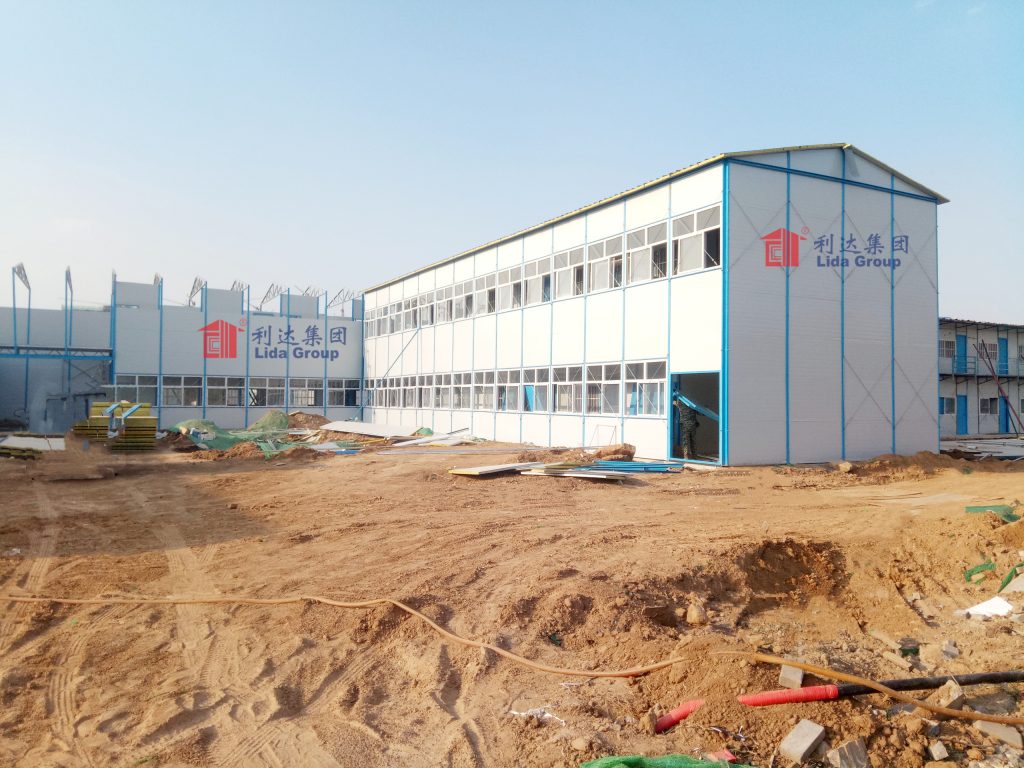
5. Quality Control and Compliance: Ensuring Luxury and Safety
Lida Group’s commitment to luxury and mobility is backed by rigorous quality control measures and compliance with international standards. The company understands that its clients—whether glamping operators, oil and gas companies, or NGOs—rely on its mobile houses to be safe, durable, and consistent. To ensure this, Lida Group has implemented a comprehensive quality management system that covers every stage of production, from material sourcing to final assembly.
5.1 Material Sourcing and Testing
Lida Group only sources materials from certified suppliers who meet strict quality standards. All raw materials—including aluminum alloy, galvanized steel, fiber cement, PU foam, rock wool, and adhesives—are tested in the company’s in-house laboratory before being used in production. Tests include:
- Strength Testing: Measuring the compressive, tensile, and impact strength of the skins and cores to ensure they meet design specifications.
- Insulation Testing: Measuring the thermal conductivity (R-value) of the cores to ensure they provide the required level of insulation.
- Fire Safety Testing: Subjecting the panels to fire tests to ensure they meet international fire safety standards (e.g., ISO 1182 for non-combustibility, ASTM E84 for flame spread).
- Weather Resistance Testing: Exposing the panels to simulated weather conditions (rain, snow, wind, UV radiation) to ensure they don’t degrade over time.
Any material that fails these tests is rejected, ensuring only high-quality materials are used in production.
5.2 Factory Production Control
Lida Group’s factories are equipped with state-of-the-art machinery and automated production lines, which ensure consistency and precision in panel manufacturing. Each panel is assigned a unique serial number, allowing the company to track its production history (e.g., materials used, manufacturing date, quality checks). Key production control measures include:
- Automated Cutting and Bonding: Computer-controlled cutting machines ensure that skins and cores are cut to exact dimensions, while automated bonding machines apply adhesives evenly and under controlled pressure—preventing gaps or delamination.
- In-Process Inspections: Quality control inspectors check each panel at every stage of production (e.g., after cutting, after bonding, after edge sealing) to ensure they meet specifications. Any panel with defects (e.g., uneven bonding, scratches on the skin) is repaired or discarded.
- Final Testing: Before shipping, each panel undergoes a final test to check its dimensions, weight, insulation properties, and weather resistance. Panels are also visually inspected to ensure they have no cosmetic defects.
5.3 Compliance with International Standards
Lida Group’s mobile houses and sandwich panels meet or exceed a range of international standards, ensuring they are safe and suitable for use in global markets. Key standards include:
- ISO 9001: Quality management system certification, ensuring consistent production and customer satisfaction.
- ISO 14001: Environmental management system certification, demonstrating the company’s commitment to sustainability (e.g., using recyclable materials, reducing waste).
- OSHA (Occupational Safety and Health Administration): Compliance with OSHA standards for workplace safety, including requirements for fire safety, structural integrity, and electrical safety.
- Local Building Codes: Lida Group works closely with local authorities to ensure its mobile houses comply with regional building codes, which may vary by country or region (e.g., seismic codes in earthquake-prone areas, wind load codes in coastal areas).
This compliance gives clients confidence that Lida Group’s mobile houses are not just luxurious and mobile—they are also safe and legal to use in their target markets.
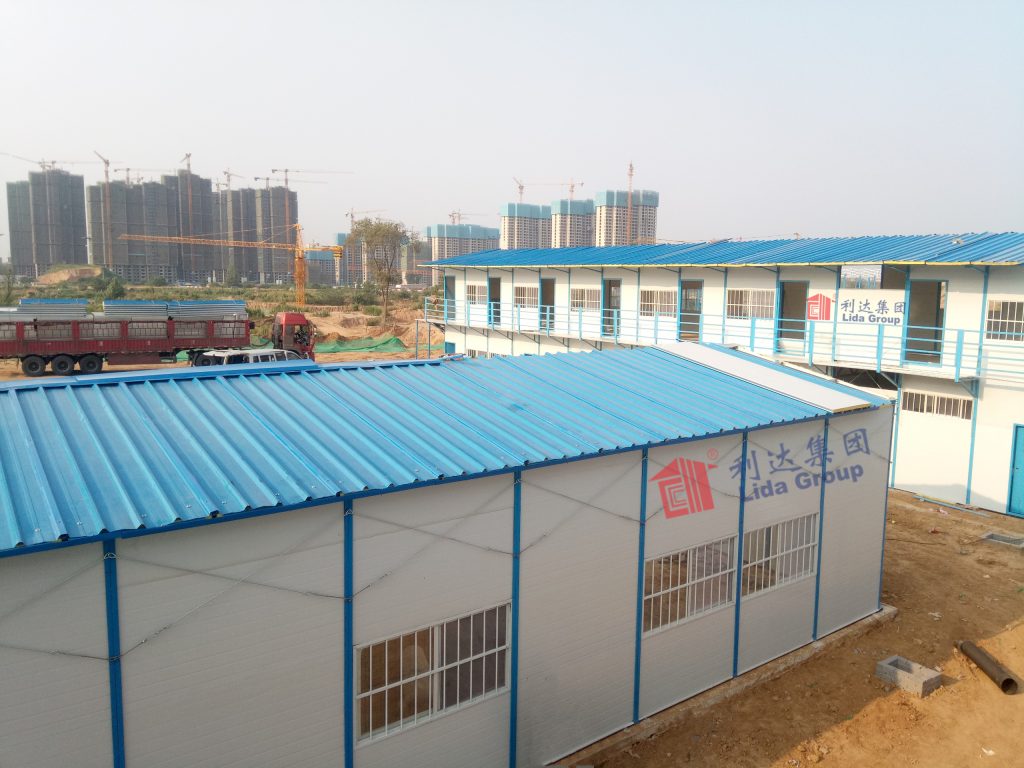
6. Sustainability: Luxury That’s Kind to the Planet
In today’s world, luxury is no longer just about comfort and aesthetics—it’s also about sustainability. Clients across industries are increasingly seeking solutions that are environmentally friendly, as consumers, investors, and regulators demand more responsible practices. Lida Group’s mobile house range, with its premium sandwich panel designs, is built with sustainability in mind, offering a range of eco-friendly benefits that align with these demands.
6.1 Reduced Environmental Impact During Production
Traditional construction generates a significant amount of waste, as materials are cut and shaped on-site, and excess materials are discarded. Lida Group’s off-site manufacturing process for sandwich panels minimizes waste in several ways:
- Precision Cutting: Automated cutting machines ensure that materials are cut to exact specifications, reducing scrap waste by up to 90% compared to on-site construction.
- Material Recycling: Any scrap material (e.g., aluminum, steel, foam) generated during production is recycled, rather than being sent to landfills. For example, scrap aluminum is melted down and reused to make new skins, reducing the demand for virgin aluminum (which requires large amounts of energy to produce).
- Energy-Efficient Factories: Lida Group’s factories use energy-efficient lighting, heating, and cooling systems, as well as solar panels to generate renewable energy. This reduces the company’s carbon footprint and lowers the environmental impact of production.
6.2 Energy Efficiency in Use
Lida Group’s sandwich panels are designed to be energy-efficient, reducing the amount of energy required to heat, cool, and power the mobile houses. This not only lowers the environmental impact of the structures but also reduces energy costs for clients:
- Superior Insulation: The high R-value of the panels means that less energy is needed to maintain comfortable indoor temperatures. For example, a glamping unit with PU foam panels uses 40-60% less energy for air conditioning in summer than a traditional temporary structure.
- Renewable Energy Integration: The panels are designed to be compatible with renewable energy systems, such as solar panels and wind turbines. The roof panels, for instance, are reinforced to support the weight of solar panels, and the electrical system is wired to integrate with solar inverters. This allows clients to power their mobile houses using clean, renewable energy, reducing reliance on fossil fuels.
6.3 Recyclability and Reusability
Unlike traditional buildings, which are often demolished and sent to landfills when no longer needed, Lida Group’s mobile houses are fully recyclable and reusable—aligning with circular economy principles:
- Reusability: The modular design of the sandwich panels allows the mobile houses to be disassembled and relocated to new sites. For example, a construction company can use the same accommodation units for multiple projects, reducing the need to build new structures each time.
- Recyclability: When the panels reach the end of their lifespan (after 20-30 years of use), they can be disassembled into individual components, which are then recycled. The aluminum and steel skins can be melted down and reused, while the foam cores can be recycled into new insulation materials or fuel.
This recyclability and reusability mean that Lida Group’s mobile houses have a much lower environmental impact over their lifecycle than traditional temporary structures.
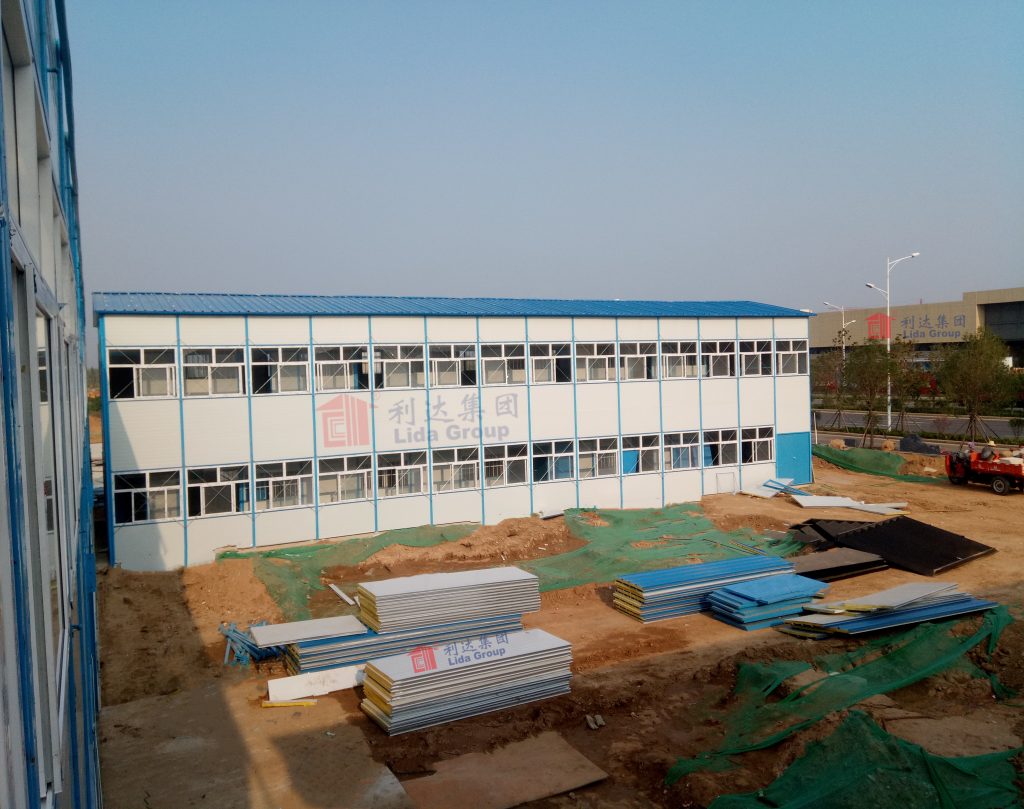
7. Conclusion
Lida Group’s high-quality mobile house range represents a perfect fusion of luxury and mobility, made possible by its innovative premium temporary sandwich panel designs. In an era where temporary structures are no longer limited to basic functionality, Lida Group has redefined the category by delivering solutions that are as comfortable, stylish, and durable as permanent buildings—while retaining the core advantage of mobility.
The key to this success lies in the technical excellence of Lida Group’s sandwich panels. By combining high-quality outer skins (aluminum alloy, galvanized steel, or fiber cement) with superior core materials (PU foam, rock wool, or XPS foam), the panels offer a unique blend of lightweight mobility, superior insulation, aesthetic versatility, and rapid installation. These properties make Lida Group’s mobile houses ideal for a range of luxury-focused markets, from glamping resorts and high-end worker accommodations to VIP events and emergency response shelters.
Beyond technical performance, Lida Group’s commitment to quality control, compliance, and sustainability ensures that its mobile houses are not just luxurious and mobile—they are also safe, reliable, and environmentally friendly. Rigorous testing and production control measures guarantee consistency and durability, while compliance with international standards ensures the structures are suitable for use in global markets. Sustainability features, such as reduced waste during production, energy-efficient design, and recyclability, align with the growing demand for eco-friendly solutions.
Real-world applications—from a luxury glamping resort in the Swiss Alps to emergency shelters in Southeast Asia—demonstrate the tangible value of Lida Group’s mobile houses. Clients report higher occupancy rates, improved worker productivity, and positive feedback from users, all while benefiting from the cost savings and flexibility of mobile structures.
As the demand for premium temporary solutions continues to grow across industries, Lida Group is well-positioned to remain a leader in the market. Its ability to balance luxury and mobility, combined with a focus on quality and sustainability, makes it a trusted partner for clients seeking temporary structures that don’t compromise on comfort, style, or performance. For anyone looking to invest in temporary housing that delivers long-term value—whether for hospitality, industry, events, or emergency response—Lida Group’s mobile house range, with its premium sandwich panel designs, is the clear choice.
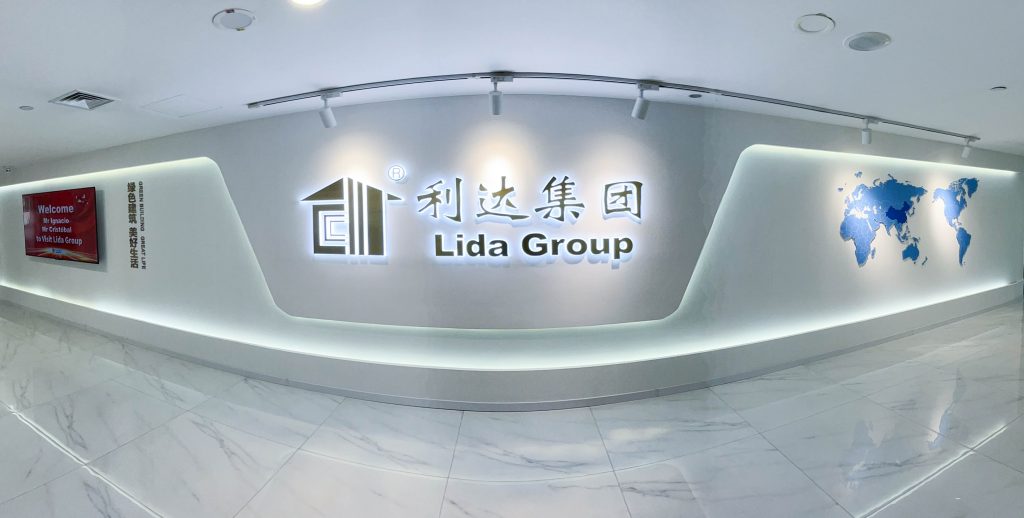
Related news
-
Why Mining Corporations Choose Lida Group's High Quality Mobile Houses for Durable Prefab Building Camp Solutions
2025-08-25 13:42:24
-
Disaster Relief Transformed: Rapid Deployment of Temporary Sandwich House Solutions via Lida Group's Prefab Building Expertise.
2025-08-25 11:33:00
-
Lida Group Unveils High Quality Mobile House Series Using Advanced Prefab Building Techniques for Temporary Sandwich Panel Homes
2025-08-25 11:00:12
contact us
- Tel: +86-532-88966982
- Whatsapp: +86-13793209022
- E-mail: sales@lidajituan.com


